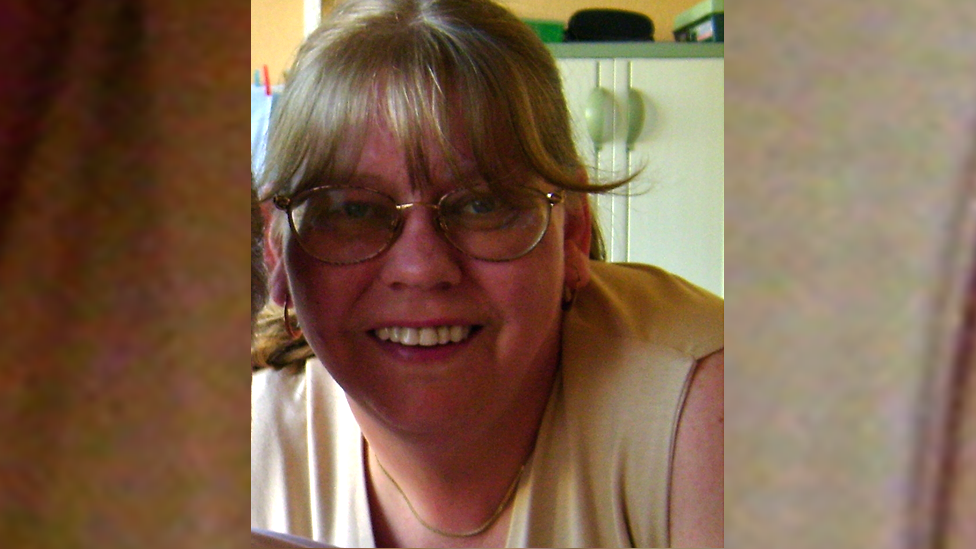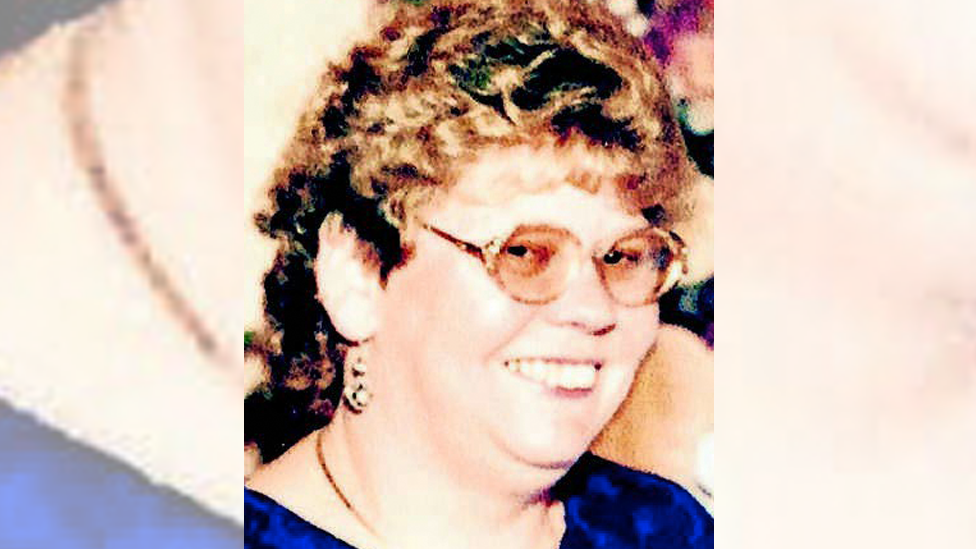Inquiry call after Trudy Jones' cardiac arrest death
- Published

The family of a woman who died after a cardiac arrest are calling for an inquiry into why she became an unknowing participant in a drugs trial.
Trudy Jones, 49, from Wrexham was treated with what may have been an injection of salt water rather than adrenaline when she fell ill in 2016.
But her family have said they did not find out about her involvement in the trial until her inquest last year.
The Welsh Ambulance Service has offered to meet them to discuss their concerns.
It was one of five ambulance services in the UK taking part in the trial, led by the University of Warwick, involving research into the effectiveness of adrenaline on treating patients suffering a cardiac arrest.
The trial, which has finished, saw ambulance crews given trial kits containing salt water and adrenaline, to be used at random.
Nobody knew who was given what, apart from researchers analysing the results.
Mrs Jones' husband, Ron Jones, wants to know whether his wife received adrenaline or not.
He said: "I felt angry when I found out because no-one had asked us at any point if we wanted to be in that trial or not.
"No one mentioned that my wife had been part of a drugs trial until the inquest almost two years later in November 2017.
Anger over dying wife's drug trial revelation
"I just want to know what treatment she actually received. It will help me to understand what happened. I'm still grieving over two years later."
Geoff Ryall-Harvey, chief officer of patient watchdog North Wales Community Health Council, has taken up the family's case.
He is asking for an inquiry into the way the Welsh Ambulance Service handled the case.
"There must be some other way to get this information, some other way than when people are on the brink of death," he said.
"It's playing God and playing Russian roulette."
Dr Brendan Lloyd, the Welsh Ambulance Service's medical director and deputy chief executive, said: "We would once again like to extend our deepest condolences to Mrs Jones' family at this sad and difficult time.
"All patients still received treatments which are proven to provide the best chance of survival from a cardiac arrest, such as CPR and early defibrillation."
He said six months before the trial a media campaign was conducted in Wales to make people aware of it.
But, following an "ethically approved" process, patients and relatives were not made aware of a patient's involvement in the study.
However, details of Mrs Jones' involvement were shared at the inquest, he said.
A University of Warwick spokesman said: "Research studies suggest that, while adrenaline may restart the heart initially, it may lower overall survival rates and increase brain damage and there are real concerns in the clinical and research community that current practice may be harming patients."
- Published7 November 2017
